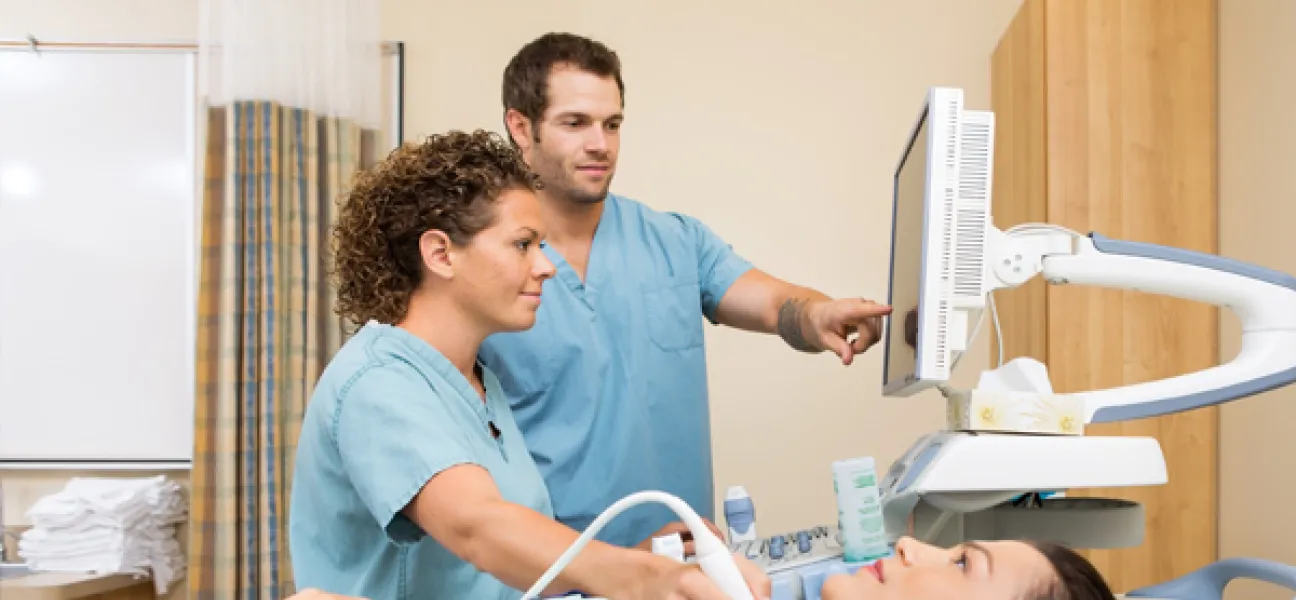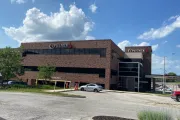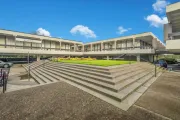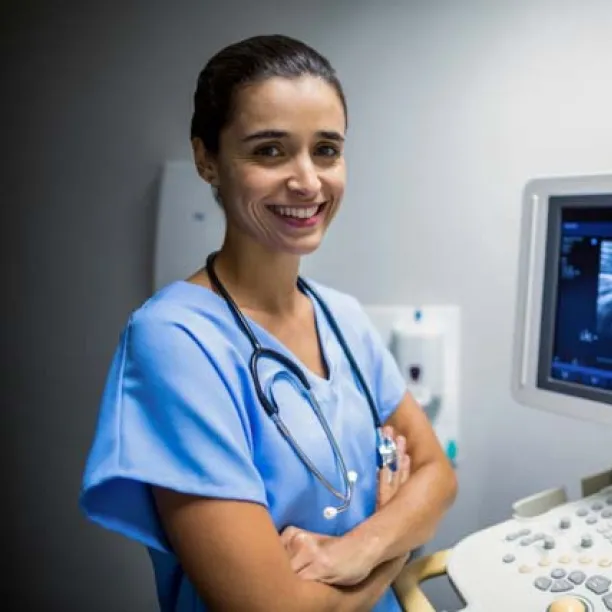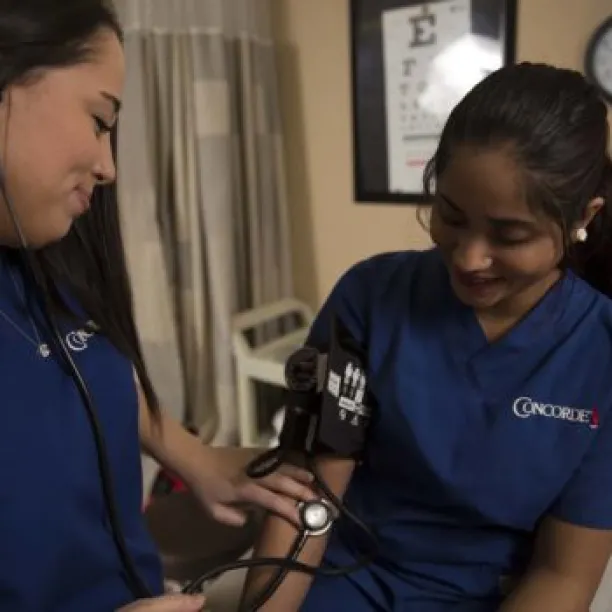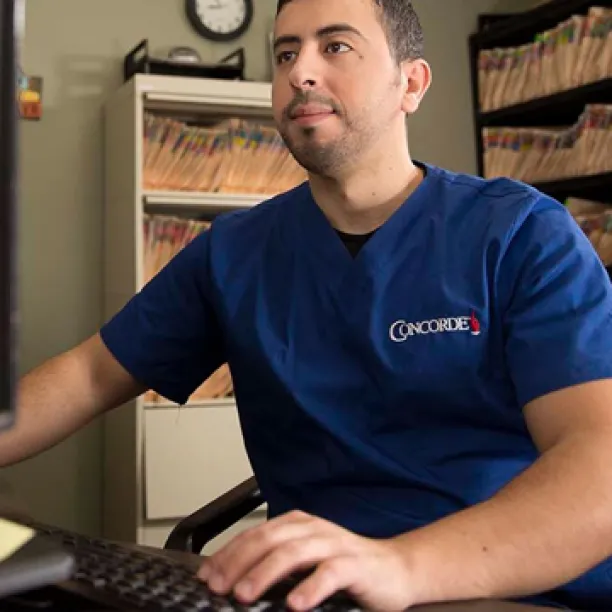Now Enrolling
Serve The Health Of Your Community Through Work You Love
The Diagnostic Medical Sonography associate degree program teaches students the technical skills needed to be successful in their jobs, like performing diagnostic procedures and obtaining images, identifying abnormal pathology within the body, oral or written summary of exams to doctors for diagnosis.
Performing an ultrasound is a non-invasive way to visualize internal organs often used first to detect for disease. Therefore, it is the perfect career for those interested in going into the healthcare field. Diagnostic medical sonographers have an important role in conducting and interpreting initial imaging tests to help narrow down a patient’s diagnosis and quickly get them the care they need.
Get Started, Train to Become a Diagnostic Medical Sonographer
Have you been thinking of a career in Diagnostic Medical Sonography, or are you searching for the right DMS program near you? Concorde can help you realize your career aspirations through an associate degree in Diagnostic Medical Sonography as you prepare for this exciting, fast-growing field of diagnostic healthcare.
With trained facilities and educators who have years of practical experience working in healthcare, reach out and learn about our classes and requirements today!
**Source: U.S. Bureau of Labor Statistics- healthcare occupational outlook handbook, the national projected job demand between 2024-2034 for diagnostic medical sonographers, https://www.bls.gov/ooh/healthcare/diagnostic-medical-sonographers.htm. Projections are national. Local job market demand may vary.
Get Started
Campuses
California
Colorado
Florida
Missouri
Oregon
Tennessee
Texas
Curriculum
Diagnostic medical sonographers use special imaging equipment that directs sound waves into a patient's body (in a procedure commonly known as an ultrasound, sonogram, or echocardiogram) to assess and diagnose various medical conditions.
The Diagnostic Medical Sonography curriculum integrates didactic and clinical instruction with increasing expectations at each level. Clinical sites utilized by the program are geographically dispersed. Students may have to travel outside of the local area for clinical placements.
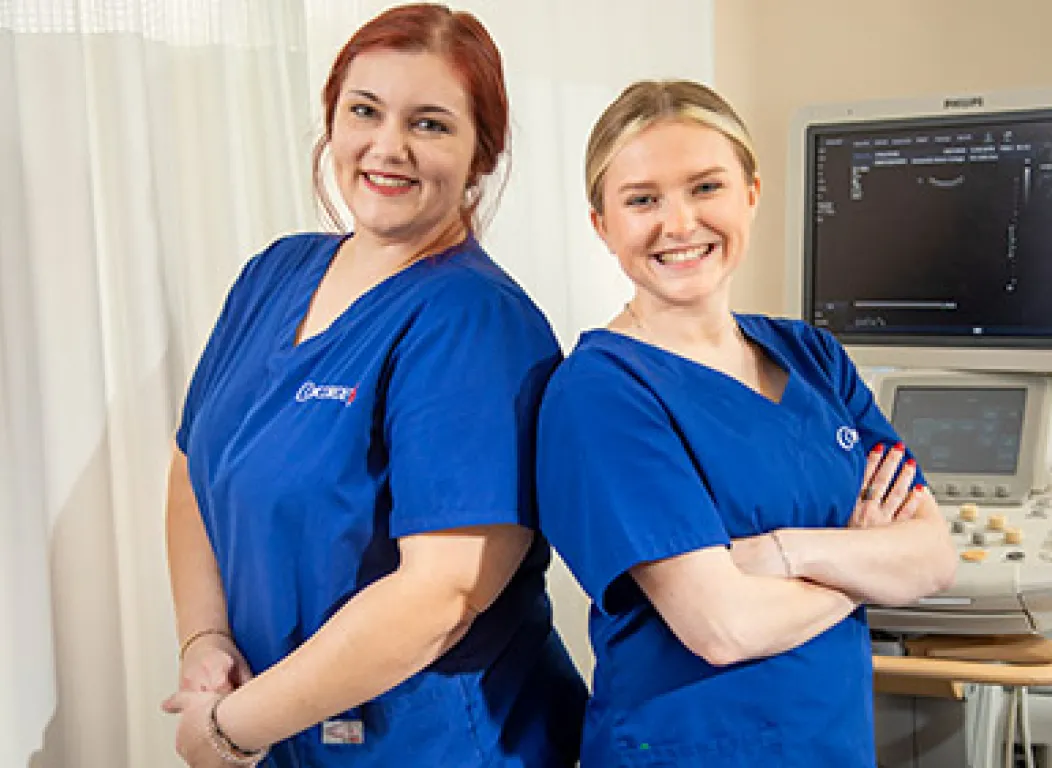
Program Objectives
To prepare competent entry-level general sonographers in the cognitive (knowledge), psychomotor (skills), and affective (behavior) learning domains.
Graduates of this program will develop skills to:
- Be clinically competent to perform appropriate procedures and record anatomic, pathologic, and/or physiologic data;
- Apply critical thinking and problem-solving skills to exercise discretion and judgment in performance of diagnostic sonography;
- Demonstrate appropriate communication skills; and
- Demonstrate professionalism and growth in the profession.
Career Outlook
Diagnostic Medical Sonographer Career Outlook
The national demand for sonographers and ultrasound techs is expected to grow over the coming decade as greater attention is placed on diagnostic and preventive care.
Where Can a Diagnostic Medical Sonographer Work*
- Hospitals
- Private practices
- Acute Care Facilities
- Labs & Clinics
Financial Aid
As part of our commitment to your success, Concorde ensures that you have access to comprehensive information and guidance in navigating the financial aid process. Concorde offers financial aid and scholarship programs to those who qualify.

Financial Aid
Get financial support for your education with our dedicated financial aid team by your side.
Review Your Options
Scholarships
Find the perfect scholarship for your health care goals based on your background, programs or other criteria.
Search ScholarshipsInstitutional Accreditation and Licensure
Accreditation and licensure are an important part of an academic institution’s operation.
Visit our Accreditations and Licensure page for more details about our accreditations and licensure.
CAAHEP
The Diagnostic Medical Sonography program is accredited by the Commission on Accreditation of Allied Health Education Programs (CAAHEP), 9355 113th St N, #7709, Seminole, FL 33775; 727-210-2350; https://www.caahep.org/, upon the recommendation of the Joint Review Committee on Education in Diagnostic Medical Sonography (JRC-DMS).
Jacksonville, FLKansas City, MOTampa, FL
Frequently Asked Questions

Didn't find the answer to your question? Send us an inquiry and we will be happy to answer all your questions!
Contact us to find out when the Diagnostic Medical Sonography program starts at a Concorde campus location near you.
According to BLS.gov, the Diagnostic Medical Sonography job field from 2024-2034 is estimated to grow by 13%. As the large baby-boom population ages, the need to diagnose medical conditions, such as blood clots and heart disease, will increase and imaging technology is a tool used in making these diagnoses.
**Source: U.S. Bureau of Labor Statistics- healthcare occupational outlook handbook, the national projected job demand between 2024-2034 for diagnostic medical sonographers, https://www.bls.gov/ooh/healthcare/diagnostic-medical-sonographers.htm. Projections are national. Local job market demand may vary.
Concorde incorporates real-world training and off-site clinical experiences in our programs.
For program-specific tuition information, please see the campus catalog.
The Diagnostic Medical Sonography (Associate of Applied Science) program at Concorde can be completed in as little as 21 months (about 8 terms).
According to BLS.gov, the Diagnostic Medical Sonography job field is estimated to grow by 13% through 2024-2034. As the large baby-boom population ages, the need to diagnose medical conditions, such as blood clots and heart disease, will increase and imaging technology is a tool used in making these diagnoses.
**Source: U.S. Bureau of Labor Statistics- healthcare occupational outlook handbook, the national projected job demand between 2024-2034 for diagnostic medical sonographers, https://www.bls.gov/ooh/healthcare/diagnostic-medical-sonographers.htm. Projections are national. Local job market demand may vary.
Concorde incorporates real-world training and off-site clinical experiences in our programs.

